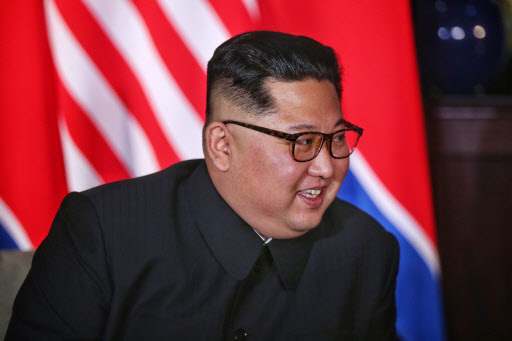With North Korea and the US having wrapped up a historic summit with a vague promise to work toward “complete denuclearization of the Korean Peninsula,” how far North Korea accepts verification will be the barometer for Pyongyang’s willingness to denuclearize, analysts say.
In the agreement signed by US President Donald Trump and North Korean leader Kim Jong-un at Tuesday’s summit in Singapore, there was no mention of how irreversibly and verifiably Pyongyang will dismantle its nuclear weapons program.

Kim Jong-un (Yonhap)
Dismissing concerns over the lack of detailed steps and timeframe of North Korea’s denuclearization, Trump said at a post-summit press conference, “I’m here for one day. The process is now going to take place.”
The two sides will now engage in intense diplomacy to narrow their differences over what the denuclearization process should entail. Trump said he would meet Kim “many times” and US Secretary of State Mike Pompeo could meet North Korean officials as early as next week.
At the heart of the negotiations would be the verification process to ensure North Korea fulfills its promise to dismantle its nuclear and missile programs -- a sticking point that derailed earlier denuclearization negotiations among six nations in 2008.
Following the summit, Trump said verification processes had been discussed during his meeting with Kim, and that Kim understood it would involve accepting large numbers of US and international personnel into the reclusive country.
Despite North Korea having shut down its Punggye-ri nuclear site and its promise to destroy a missile testing site, a robust inspection by an international body such as the International Atomic Energy Agency is key to complete denuclearization, analysts say.
“The core of complete denuclearization is a verification. Whether North Korea would agree to an intrusive inspection inside the country would be a major test of Kim‘s willingness to denuclearize,” said Park Won-gon, a professor at Handong Global University.
Under a verification mechanism, North Korea would declare its nuclear weapons, facilities and sites to a verification body such as the IAEA, and grant access to the country to carry out the inspection into the facilities.
The US went as far as to demand the North accept an intrusive inspection inside the country -- which allows external nuclear inspectors to look into suspect sites and facilities anytime, anywhere.
North Korea has opposed it, viewing it as infringing on its sovereignty. The IAEA has not had access to North Korean nuclear facilities since its personnel were expelled in 2009.
“One of the concerns is... that was the most contentious part we expected the two leaders themselves to tackle, but they did not even mention it in the agreement,” Park said. “Future working-level talks could be stuck in an impasse over the verification process.”
The follow-up negotiations over North Korea’s denuclearization might have become even trickier, as Trump himself set a high bar for verification when he declared the 2015 nuclear deal with Iran to be insufficient and withdrew from it. Under the Iran deal, the US secured 24/7 monitoring of every nuclear site in Iran and the right to access non-declared civilian and military sites.
”For the US, it would be difficult to claim victory without winning the intrusive verification inside North Korea after Trump pulled out of the Iran deal,” Park said.
A day before the Singapore summit, Pompeo said at a press briefing that the “ultimate” US objective remains “the complete, and verifiable, and irreversible denuclearization of the Korean Peninsula.” He said that is the only outcome that the US will accept.
Experts argue it would take years to conduct verification activities, especially in a secretive country like North Korea with relatively advanced nuclear weapons and ballistic missile programs.
North Korea has built an arsenal of 20 to 60 nuclear warheads, according to US authorities.
Denuclearization could take 15 years in the case of North Korea, and the best the US can hope for is a phased process that goes after the most dangerous parts of the North’s weapons program first, according to Stanford University nuclear scientist Siegfried Hecker.
(
laeticia.ock@heraldcorp.com)






![[Graphic News] More Koreans say they plan long-distance trips this year](http://res.heraldm.com/phpwas/restmb_idxmake.php?idx=645&simg=/content/image/2024/04/17/20240417050828_0.gif&u=)